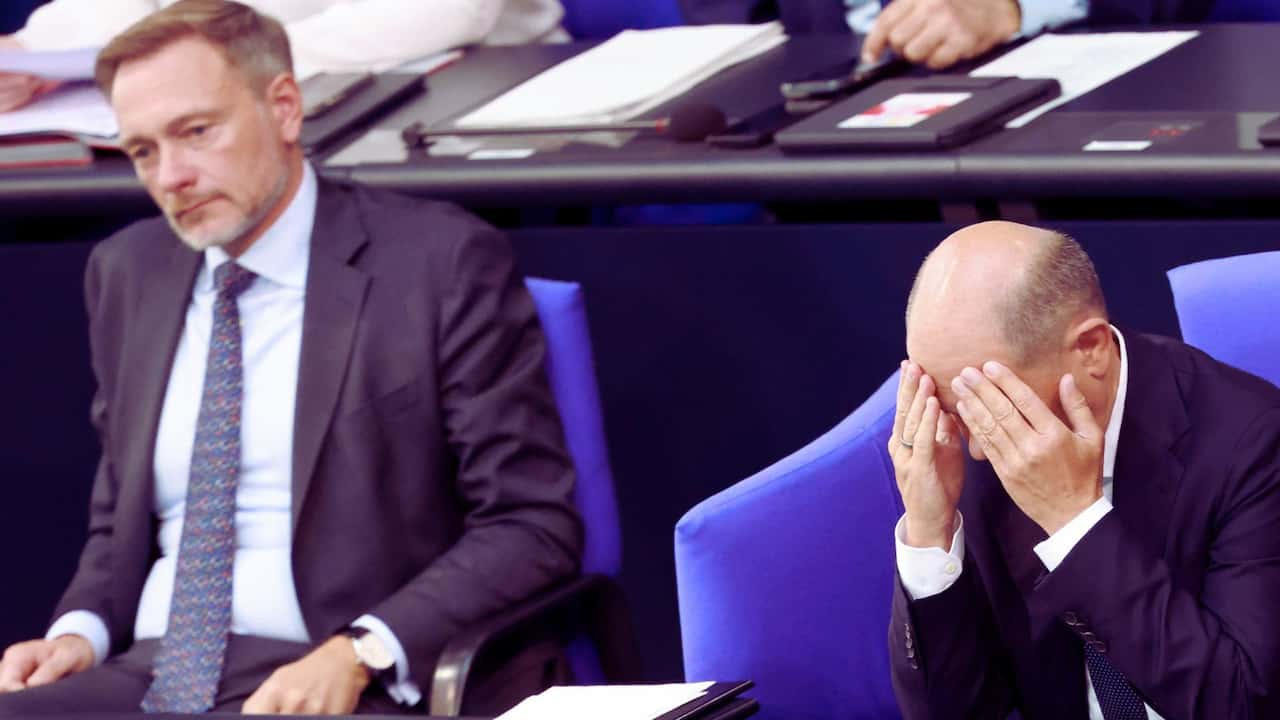Political earthquake: Germany’s coalition crumbles as Scholz dismisses Finance Minister
In a dramatic turn of events that has sent shockwaves through European politics, Germany’s governing coalition stands on the precipice of collapse following Chancellor Olaf Scholz’s stunning decision to fire Finance Minister Christian Lindner. This political crisis, unfolding in Europe’s largest economy, threatens to reshape the continent’s political landscape at a crucial moment.
The dismissal came after weeks of mounting tensions within Germany’s “traffic light” coalition, named for the party colors of its three members: Scholz’s Social Democrats (red), the Greens, and Lindner’s Free Democrats (yellow). The breaking point emerged over stark differences in economic vision and spending priorities.
The Breaking Point
In explaining his decision, Chancellor Scholz was forthright. “Lindner has broken my trust too often,” he declared, accusing his former finance minister of prioritizing party interests over national needs. The dismissal marks the first time in modern German history that a sitting chancellor has fired a coalition partner’s key minister.
The immediate trigger for this political earthquake was Lindner’s controversial 18-page economic paper titled “Germany’s Economic Turnaround.” This document, which some German media outlets dubbed “the coalition’s divorce papers,” laid bare the deep ideological rifts within the government:
- Lindner pushed for tax cuts and spending reductions.
- The Social Democrats and Greens favored increased public investment.
- Neither side showed willingness to compromise.
Economic Stakes
The timing couldn’t be more critical for Germany’s economy, which faces:
- Second consecutive year without growth
- Rising energy costs
- Mounting pressure to increase military spending
- We must provide assistance to 1.5 million refugees from Ukraine.
Robert Habeck, the Green Party’s Economy Minister, has confirmed his party will remain in the coalition, but this offers little comfort given the government’s lost parliamentary majority.
What Comes Next
Chancellor Scholz has announced a confidence vote for January 15, 2024. If he loses this vote, Germany could face snap elections by March—well ahead of the originally scheduled September 2025 date. This timeline creates several critical scenarios:
- Potential minority government until elections
- There could be potential opposition from conservatives for important legislation.
- Major policy decisions during the transition remain uncertain.
The political upheaval comes at a particularly sensitive time for Europe as it grapples with:
- Economic challenges
- Security concerns
- The ongoing support for Ukraine
- Changing transatlantic relations
Wider Implications
This crisis extends beyond Germany’s borders. As Europe’s economic powerhouse, German political stability has long been a cornerstone of EU unity. The potential power vacuum could impact:
- European Union decision-making
- Economic policy coordination
- Regional security arrangements
- International trade relations
The far-right Alternative for Germany (AfD) party has already celebrated the coalition’s troubles, with its leader Alice Weidel calling it “a liberation for our country.” This response highlights the potential for political extremes to gain from the current instability.
Looking Forward
As Germany enters this period of uncertainty, several key questions remain.
- Can Scholz secure enough support to pass critical legislation?
- Will early elections lead to a stronger or more fractured parliament?
- How will this affect Germany’s international commitments?
- What impact will this have on European unity?
The coming weeks will be crucial in determining whether Germany can maintain its role as a stabilizing force in Europe or whether this crisis marks the beginning of a new era of political uncertainty in the heart of the continent.
